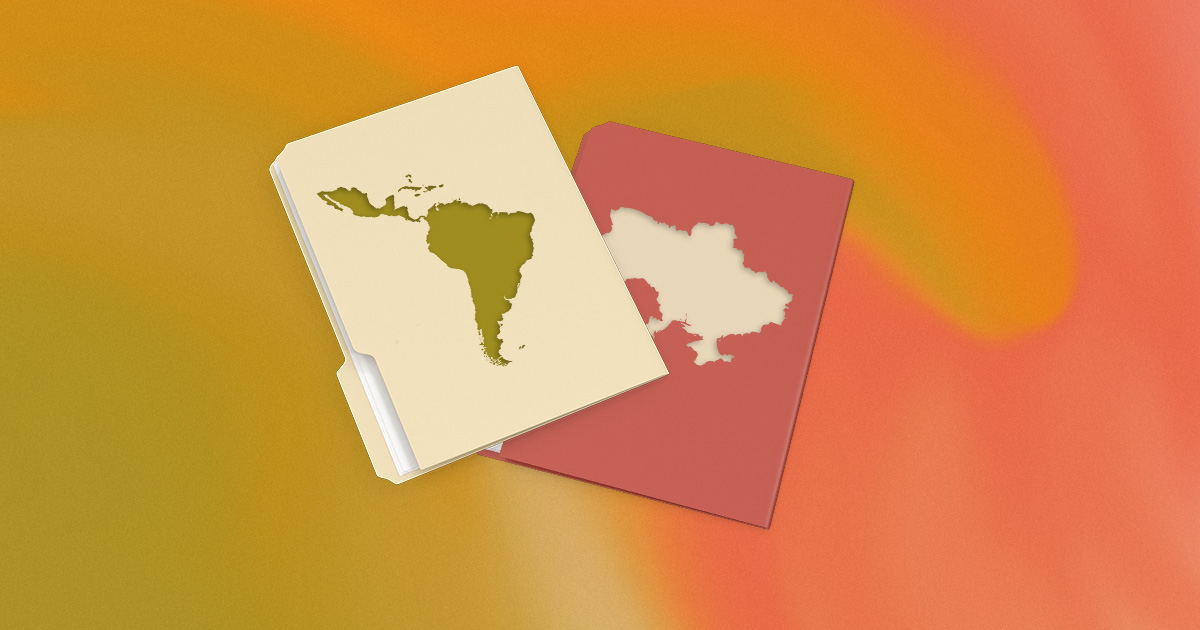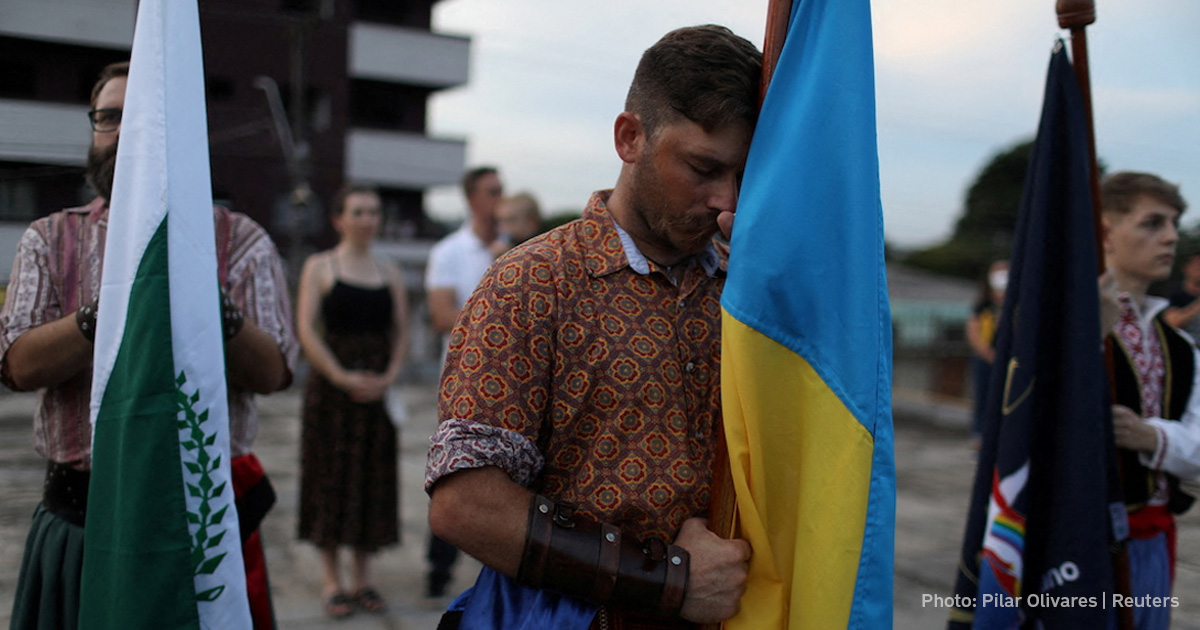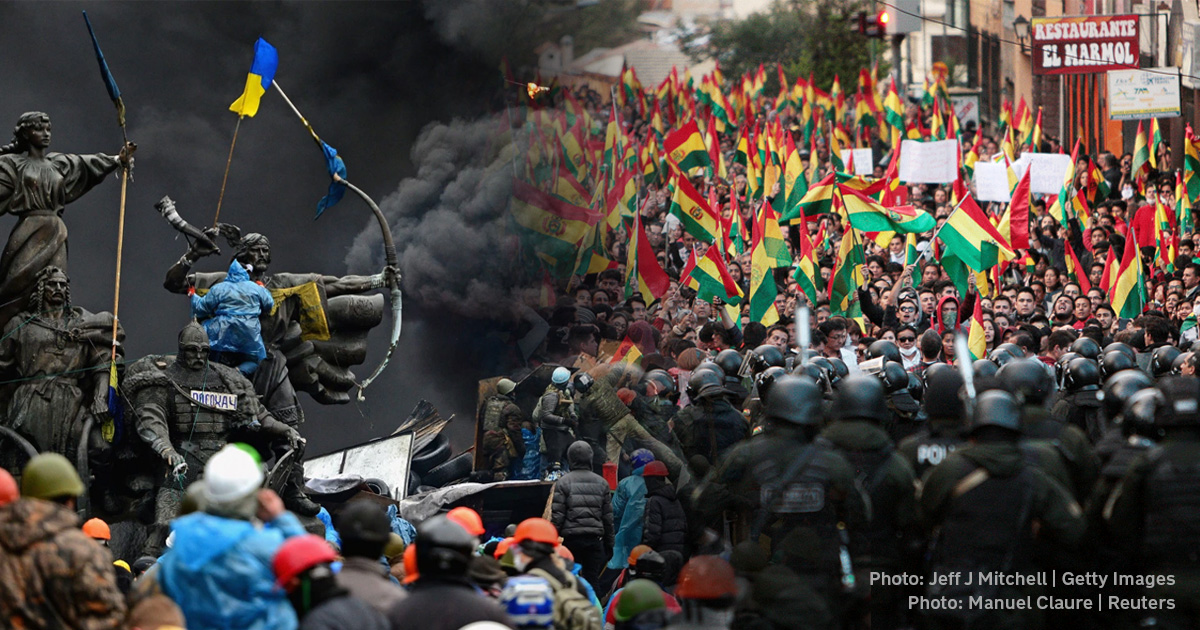Latin America and Ukraine: challenges on the way to diplomatic dialogue

It would be fair to say that Ukraine and the countries of Latin America have almost no relations. This is due to geographical, political, and ideological factors. The dialogue between the countries is complicated and requires time and effort. Read more about the prospects of cooperation in the article.
Overview of the region and features of its history
The continent of South America, Mexico, Central America, and the islands of the Caribbean Sea are considered Latin America. The locals speak Romance languages. The name is connected with the language factor since Spanish and Portuguese are mainly spoken in these countries.
La conquista de América is an important part of history of Latin America. In 1494, Spain and Portugal signed the Tordesillas contract which determined the borders between the countries and lands they had the right to conquer. Spain showed their interest in modern Mexico and the lands south of it, while Portugal retained the territory of modern Brazil. Since then, wars and genocide of indigenous tribes have taken place on the continent, which formed resistance movements.
The spirit of the French Revolution of 1799 reached Latin America, bringing liberal ideologies and the desire to have independent states. In 1821, Mexico, Guatemala, and other Central American countries achieved independence. By 1826, most of the colonial governments had been dissolved except Cuba and Puerto Rico.
Countries did not celebrate the victory of democracy for long, as the region suffered from political instability, corruption, dictatorial regimes, and economic crises after the era of imperialism. Most Latin American countries became military dictatorships in the middle of the 20th century.
Events in the middle and the end of the 20th century are characterized by significant political turbulence. For example, in Cuba, the revolution of Che Guevara and Fidel Castro took place against the regime of General Batista. The Cuban revolution inspired other countries which cause the rise of left-wing parties and organizations. A more or less stable period in the history of Latin American countries came in the 90s.

The principle of neutrality and business with Russia
The reaction of Latin American countries to the war in Ukraine can hardly be called homogeneous or consistent. Several factors play a role in the position of countries, some of which are democracies, and some others are authoritarian regimes.
“You should understand that Latin America in general is under great influence, it is called the 'backyard of the United States’. I want to give you an example of the same Evo Morales, whose statements are more anti-American than pro-Russian. Tthe Western world always rejects the intervention, the pressure, and the planting of submission, which the USA has always had. Additionally, this factor is important to consider. We did not support the sanctions against Russia, but that is because they are being promoted by the United States," said a former politician and professor at the University of Bolivia Fohad Amas in a comment to Svidomi.
Anti-American sentiment in Latin American society is one of the key factors influencing the response to the war. The president of Mexico said that the country "is not a colony of Russia or China or the United States," and the Latin American media often accuses the USA of starting a war in Ukraine.
"The war in Ukraine is perceived in Latin American countries through the prism of the interests of Russia and the USA. That is, their anti-American sentiments are so strong that they perceive the war in Ukraine as a war between two poles, which took place during the Cold War. The idea is deeply rooted in society. This began to be formed in the 60s when the USSR established diplomatic relations with the left-wing regimes of Latin American countries. Then this disinformation campaign began. Generations have grown up thinking that there are opposing forces in the world. The USSR was presented as a union that brought kindness and helped all fraternal countries, supporting revolutions; here, Nicaragua and Cuba are bright examples,” says Kateryna Vakarchuk, PhD in Political Science, Associate Professor of the Department of International Relations at Odesa Mechnykov National University.
Chile, Costa Rica, and Uruguay have condemned the Russian aggression, but at the societal level, the unofficial reaction is different. For example, after the UN voting on April 7, during which Russia was expelled from the UN Human Rights Council, the hashtags #PerdónRusia and #PerdónPutin (“perdón” — "sorry") began to spread in Argentina and Venezuela. Before the full-scale invasion, on February 3, Argentine President Alberto Fernández visited Moscow and offered to become "Russia's gateway to Latin America."
Brazil and Mexico abstain from UN voting due to neutrality. The governments of these countries adhere to the doctrine of non-interference in the internal affairs of other states — this is part of the tradition of Latin American republicanism.
Close economic ties with Russia are another factor. Former Brazilian President Jair Bolsonaro said he had no intention of influencing it. Brazil insisted that goods from Russia could enter the country freely despite the sanctions.
"Latin American countries also see Russia as a business partner. They are not particularly interested in international politics, it is rather something secondary. The priority is internal politics, and Russian business is widely represented in Latin America. For example, there is a Russian factory producing Kalashnikov rifles in Venezuela," Vakarchuk says.

Political relations with Ukraine
A problem of communication between Ukraine and the countries of Latin America is a weak network of diplomatic ties. Currently, there are embassies in Argentina, Brazil, Cuba, Mexico, and Peru, and the branches of the Embassy of Ukraine in the Argentine Republic in the Republic of Chile. Russian diplomatic institutions, for comparison, are located in almost all 33 countries of the region.
"Ukraine in Bolivia, as in all pacifist countries, is perceived as a victim. Before that, Ukraine was considered a country of far-right fanaticism, just like Germany was. This is because little information comes from Ukraine. In the eyes of Latin Americans, Ukraine has always been under the "protectorate" of the Soviet Union, and almost nothing has changed in 30 years," Fohad Amas said.
It was indicative that President Zelenskyy was denied a speech at the summit of the Mercosur trade union.
"The last visit of the President of Ukraine to Latin America was in 2011, and it was Yanukovych. Then a strategic partnership was signed. 11 years have passed, during which nothing happened," explained Kateryna Vakarchuk.
Ukraine has also not established proper contacts with the Ukrainian diaspora in Latin American countries.
"There is a Ukrainian diaspora in Latin America, which was formed there in the 19th century. In fact, we were not interested in them and had no contacts and joint projects. We didn't have the funds and opportunities for this. It is difficult to say at this time what we can do in the context of diaspora relations due to martial law. Another problem is that the diaspora in Brazil and Argentina has no leverage in politics. There is a Ukrainian parliamentary commission, but it also has no political influence," Vakarchuk said.
Another weakness of Ukrainian relations with these states is the lack of Spanish-speaking analytical centers and media.
"The only country that has banned Russia Today is Uruguay. All others take their information precisely from Russian Spanish-speaking channels. It will be difficult for Ukraine to create even something like the Shevchenko Institute, like the Confucius and Cervantes Institutes. It is necessary to create at least representative offices so that experts and scientists come there," the historian believes.
According to the expert, there are Pushkin institutes in Latin America, which are powerful organizations on the basis of diplomatic embassies of Russia.
"We can't even compete with them. In 20 years, they have created a huge network that allows them to control the media sphere. Moreover, in countries with left-wing regimes, Russian media are included in the package with free TV channels. As a result, no country, except Guatemala, joined the sanctions against Russia," said Kateryna Vakarchuk.
Future prospects
Despite the geographical remoteness, the region has many prospects for cooperation both economically and geopolitically. However, there are some changes — on October 5, 2021, in Prudentópolis, Brazil, the Ukrainian language was recognized as official in the municipality for the first time in history.
"The Crimean platform is also a good idea. It began to join the countries of Latin America. Unfortunately, only Guatemala joined this year, but the situation will change in a few years," Vakarchuk highlighted.
The region can become an important economic partner for Ukraine. Several factors contribute to this now.
"Sanctions limiting Russian products open up prospects for Ukrainian producers, especially in the field of agricultural products. There are projects of cooperation between Ukraine and the Brazilian company for the production of combine harvesters. Peru buys AN aircraft from Ukraine," said Kateryna Vakarchuk.
The expert advises creating high-quality educational programs that will teach specialists who will be able to create centers with high-quality analytics in the Spanish language in the future. Exchange programs for students should also be improved, as many ideas can be implemented through the youth.
"The war in Ukraine is a chance to build relations. It is necessary to get rid of historical wounds and build relations based on interests," says Amas.


